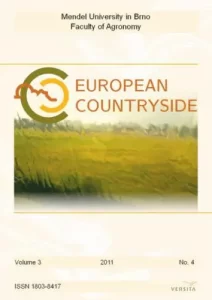European Countryside – Volume 15 (2023): Issue 2 (June 2023)
What Can Hungarian Counties do for the Countryside?
Ilona Pálné Kovács
Open Access article – Published Online: 28 Jun 2023
Page range: 297 – 312
Abstract
The aim of the paper is to contribute to the scientific discussion on the transmitting, coordinating role of meso level governments in regional development focusing mostly on rural areas. We can distinguish between the power position of rural local governments and communities and the strongly networked urban areas that tend to govern themselves according to different leadership models and logic. Rural, municipal governments and agents are working under assymetrical power relations and rely on the interventions of the „upper level” for assistance. The paper, besides the theoretical literature review, includes empirical elements based on empirical research conducted (first in all Hungarian counties (2018) and after focusing on Baranya county between 2020 and 2022) to illustrate how the weak legal, political and social position and administrative capacity of county self-governments hinder such a role, and why it would be necessary to strenghten the coordination and interest representation at meso-level (Pálné, 2019; NKFIH no. 132294). The county governments have a long history, depending on the centralized or decentralized model of governance in the given period. Hungarian counties have recently been tasked with the mission of regional development, especially in rural areas, but as our preliminary results indicate, rural municipalities have not benefited so much from this new role. Despite Baranya being one of the poorest Hungarian counties dominated by rural small municipalities, the empowerment and embeddedness of county governments hardly enable the enforcement of rural priorities and representing the interest of municipaliities within a dominantly centralized regional development system. The paper intends to offer a theoretical approach rather than a policy analysis, however, the concluding chapter formulates some ideas on the directions of future reforms arguing for the necessity of re-decentralization in Hungary.
Keywords
- county governance
- development policy
- rural development
- centralization and decentralization
- Hungary
Comments on the European Court of Auditors’ Special Report on the Leader Programme
Abstract
Concerning the efficiency of the different development methods, especially the definition of added value, neither science nor practice has so far established a universally accepted opinion. A special report of the European Court of Auditors in July 2022 on the “other values” of the LEADER/CLLD development method also pointed out which factors that are closely linked to added value might be missing from an EU evaluation. These factors are the conditions that, in a highly logical correlation, can guarantee the success of a development method. The study, while presenting the most important conditions for the efficiency of the LEADER method, evaluates and responds to the Court of Auditors’ Special Report, which does not sufficiently address these issues. In doing so, it contributes to a multi-faceted presentation of the role of the LEADER method in development policy and to the formulation of the reader’s own, independent judgement.
Keywords
- LEADER method
- CLLD
- rural development
- added value



